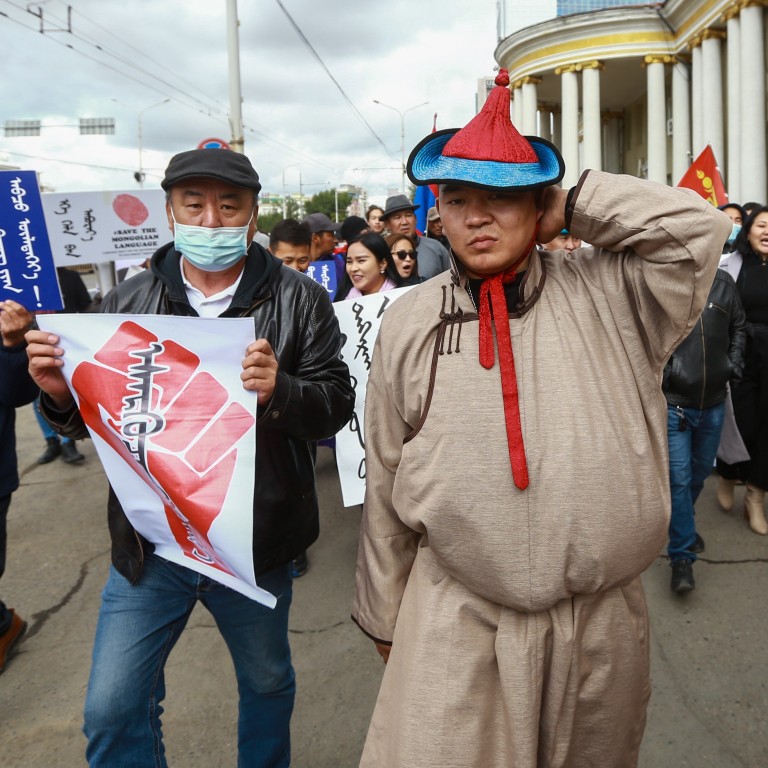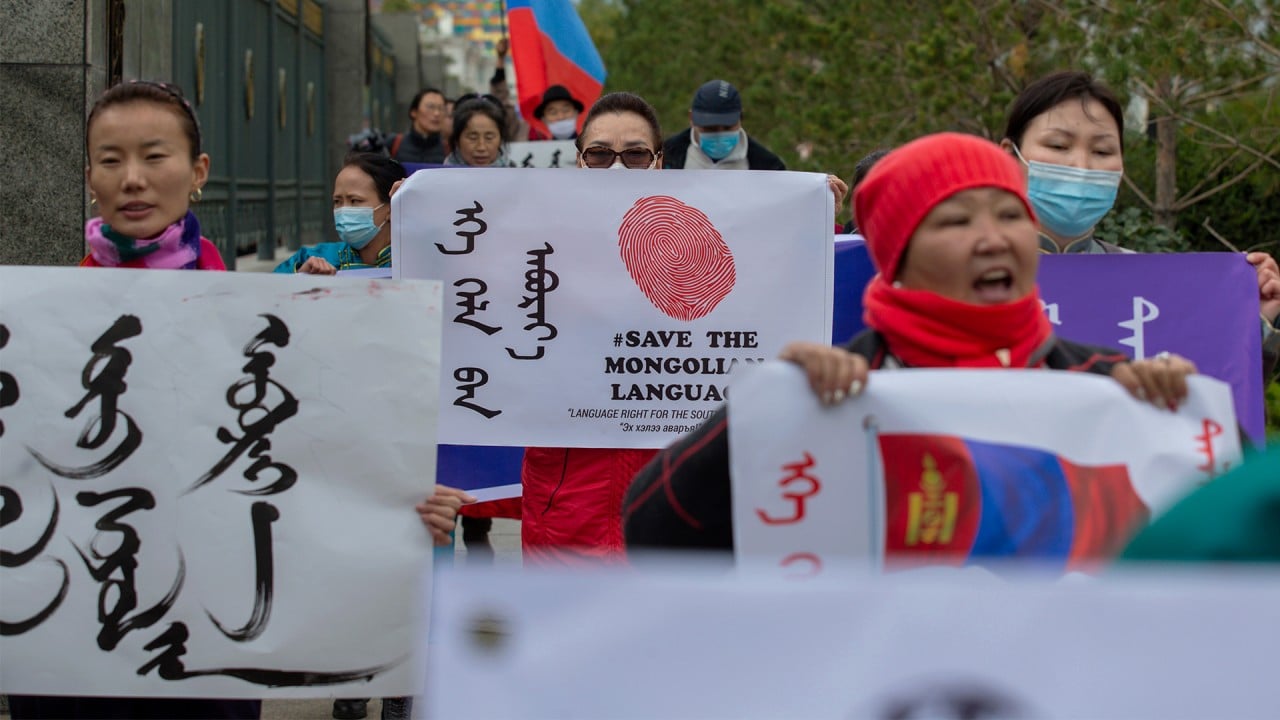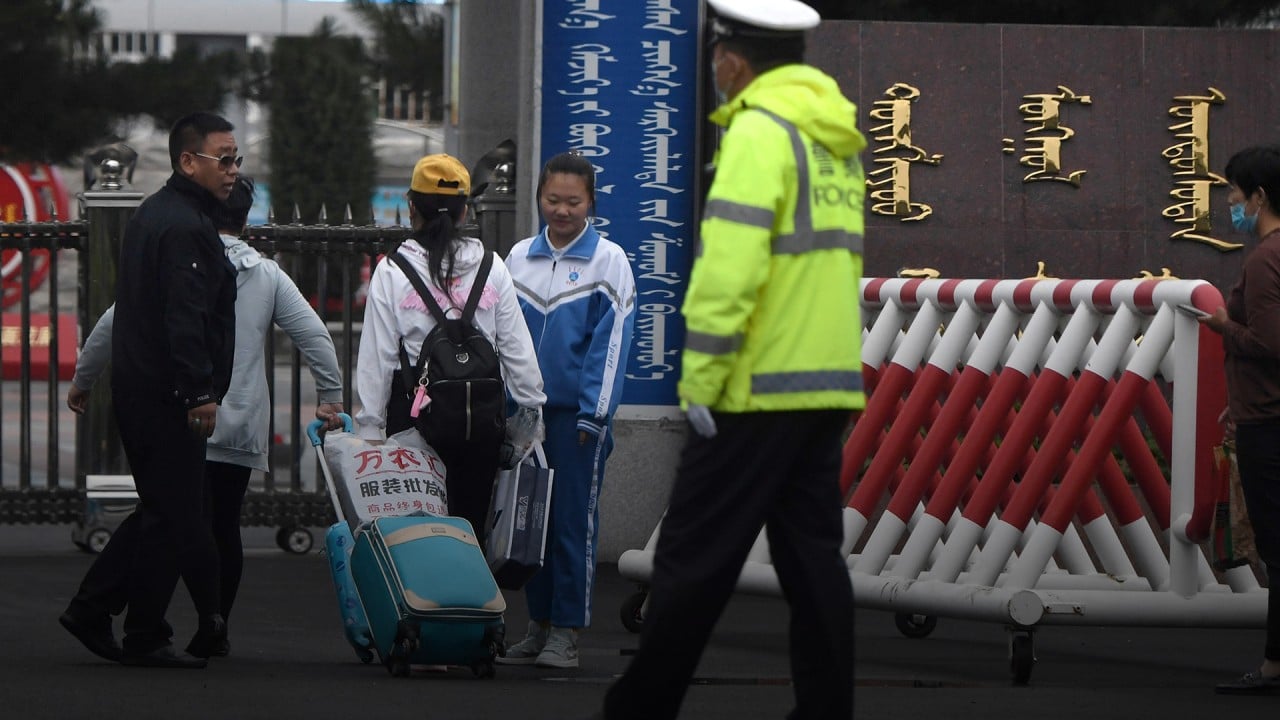
China’s Foreign Minister Wang Yi calls for mutual respect in Mongolia visit
- Protesters accuse Beijing education policy in neighbouring autonomous region of suppressing Mongolian culture in China
- Diplomatic meeting coincides with strong exchange between Chinese ambassador to Ulan Bator and former Mongolian president
More than 100 protesters convened in Ulan Bator’s main square, many in traditional Mongolian clothing, on Tuesday to coincide with the visit, chanting slogans including “Wang Yi go away” and calling to protect their language.
During talks with his Mongolian counterpart, Nyamtseren Enkhtaivan, on Tuesday, Wang said the two countries should respect each other’s sovereignty, strengthen mutual political trust and avoid interfering in each other’s internal affairs, according to China’s foreign ministry.

01:48
Mongolians protest Beijing’s language policy in Inner Mongolia as Chinese foreign minister visits
A statement from Mongolia’s foreign ministry did not refer to mutual respect on domestic affairs, but added that, along with increasing bilateral trade, there was discussion of strengthening trilateral cooperation with Russia.
Tens of thousands have protested against the policy change, seeing it as a move to extinguish the Mongolian language and culture, while Beijing has defended the action as necessary to help ethnic Mongolians with employment and to better integrate into the majority ethnic Han society.
Wang is expected to also meet this week Mongolian President Khaltmaagiin Battulga, who in February was the first foreign leader to visit China after the new coronavirus outbreak and offered a donation of 30,000 sheep.
US-China tensions: why Mongolia is in the middle of a new cold war
But the protests in Inner Mongolia, and the subsequent clampdown there, have sparked anger in Mongolia, including from high-profile figures such as Battulga’s predecessor Tsakhiagiin Elbegdorj.
The former president has been outspoken on social media, slamming Beijing’s actions in the autonomous region as “cultural genocide”, and supporting Mongolians in seeking to preserve their language and culture in China.
“The right to learn and use one’s mother tongue is an inalienable right for all,” Elbegdorj wrote on Twitter earlier this month. “Upholding this right is a way for China to be a respectable and responsible power.”
Mongolians credit Genghis Khan for country’s Covid-19 success
In an interview with Mongolia’s Daily News on Tuesday, Chinese ambassador Chai Wenrui criticised Elbegdorj for his remarks and said false information about the situation in Inner Mongolia would harm relations between the two countries.

03:11
Mongolians fear loss of languages as China pushes Mandarin at school
According to the report, Chai also pointed out that China’s demand for coal was on the decline. Mongolia’s economy has grown increasingly dependent on China in recent years, particularly its coal exports, which were suspended for two months after the coronavirus outbreak.
Elbegdorj responded with a tweet on Tuesday in which he accused Chai of making “a childish mistake” in his categorisation of Mongolia’s views on China’s territorial integrity. Mongolia and China had never discussed the sovereignty of Inner Mongolia he said, pointing out that Mongolia had long respected Beijing’s claims to self-ruled Taiwan.
Neither China’s embassy in Mongolia nor Elbegdorj responded to requests for further comment.

